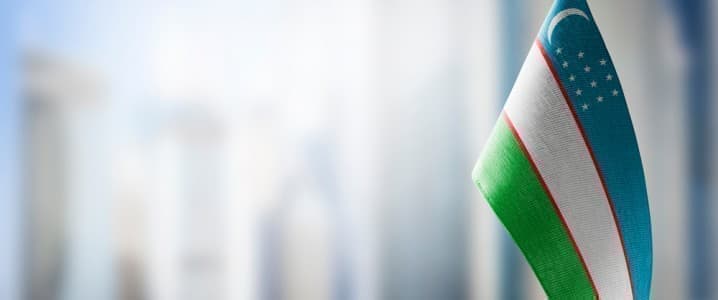The Uzbek government appears willing to loosen its control over the flow of information within Central Asia’s most populous nation as part of a comprehensive reform initiative to enhance its membership qualifications for the World Trade Organization.
President Shavkat Mirziyoyev has expressed a desire for Uzbekistan to gain WTO membership as soon as 2026. WTO membership status is granted after a lengthy negotiation process overseen on the organization’s side by what is known as a “working party.” A working party was established to consider Uzbekistan's qualifications in 1994, but not much progress has been made toward membership since then.
WTO membership agreements are negotiated individually with each aspiring member, but all entail requirements to create a liberal trade framework, founded upon open, fair and transparent policies. Such requirements weren’t so appealing to former Uzbek leader Islam Karimov, whose regime maintained rigid control over all facets of economic and political activity in Uzbekistan. Since replacing Karimov, who died in 2016, Mirziyoyev has moved steadily to liberalize the economy.
Now, he seems ready to make the big leap towards WTO membership.
On June 3, Mirziyoyev issued a decree authorizing a broad array of economic reforms intended to bring Uzbekistan’s trade rules into closer alignment with WTO standards. Perhaps the reform with the most far-reaching ramifications for Uzbekistan is a provision to loosen the state’s iron grip on citizens’ access to information.
Since Uzbekistan gained independence following the collapse of the former Soviet Union in 1991, rights watchdog groups have routinely ranked Uzbekistan as among the globe’s most repressive states, strictly limiting the circulation of news and information not conforming to government viewpoints. Such poor watchdog evaluations have continued under Mirziyoyev’s administration. For example, Freedom House’s most recent annual report on Internet freedom, titled Freedom of the Net 2023, ranked Uzbekistan as one of the most closed information environments in the world, keeping company with the likes of Russia, China and Iran.
Mirziyoyev’s June 3 decree could radically change Uzbekistan’s information environment. He directs the country’s Ministry of Digital Technologies to develop procedures by October 1 to enable telecom operators and Internet service providers to connect with international Internet networks. At the same time, the decree indicates the government would retain the ability to require providers to provide authorities with information about individuals’ usage and search habits. The decree also emphasizes that the liberalization of Internet access is experimental.
“Telecommunications operators with mobile and (or) wired telecommunications networks operating on the territory of the Republic of Uzbekistan, as an experiment, are granted the right to directly connect to international Internet networks for their own commercial needs, in full compliance with the requirements of operational investigative activities, information and cyber security systems,” the decree states.
Preparations for WTO membership will likely deliver some substantial shocks to Uzbek companies. Another provision in the presidential decree mandates the Trade Ministry to develop a draft bill covering the abolition of “subsidies and preferences provided to support exports.” The lifting of such state support for exporters is envisioned to go into effect January 1, 2025.
The decree authorizes several steps by January 1 to promote transparency, aiming to “ensure a healthy competitive environment in public procurement.” It also enumerates action to be taken before the end of 2024 to “bring the current customs duties, fees and costs in the republic into compliance with the requirements of the General Agreement on Tariffs and Trade.”
To demonstrate Uzbekistan’s commitment to the reform process, Mirziyoyev ordered the creation of an interdepartmental working group to report each month on the implementation of provisions contained in the decree. It also names Prime Minister Abdulla Aripov as having “control over the implementation of the decree.”
ADVERTISEMENT
More Top Reads From Oilprice.com:
- Europe’s Natural Gas Prices Jump on Uncertainty Over Russian Supply
- European Officials Discuss Plans to Keep Russia-Ukraine Gas Pipeline Operational
- Trade War Concerns Loom Over US and UK Elections


















